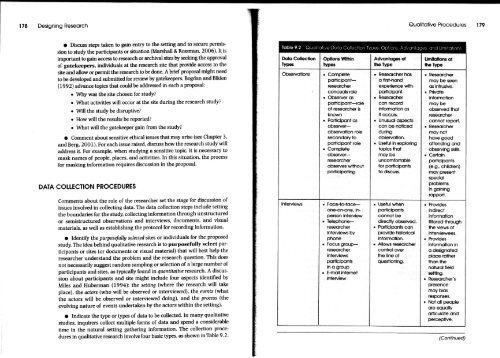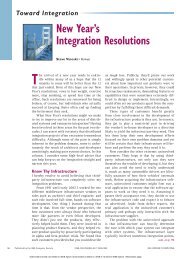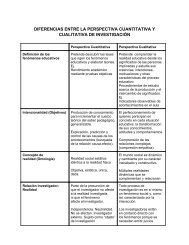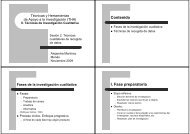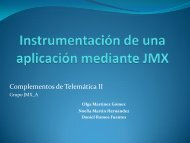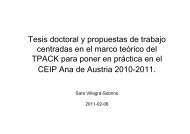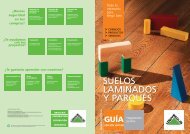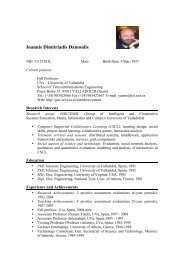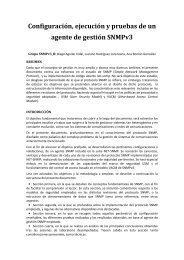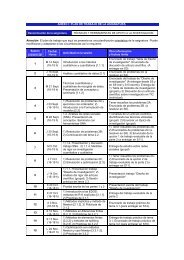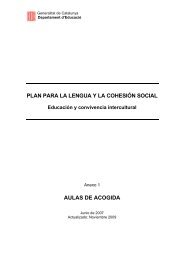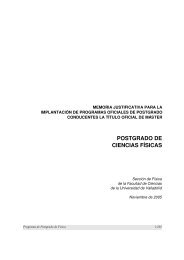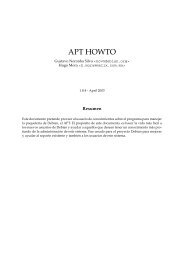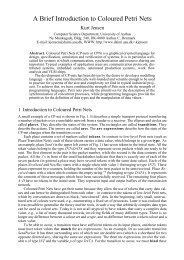Research Questions and Hypotheses
Research Questions and Hypotheses
Research Questions and Hypotheses
You also want an ePaper? Increase the reach of your titles
YUMPU automatically turns print PDFs into web optimized ePapers that Google loves.
178 Designing <strong>Research</strong> Qualitative Procedures 179<br />
Discuss steps taken to gain entry to the setting <strong>and</strong> to secure permission<br />
to study the participants or situation (Marshall & Rossman, 2006). It is<br />
important to gain access to research or archival sites by seeking the approval<br />
of gatekeepers, individuals at the research site that provide access to the<br />
site <strong>and</strong> allow or permit the research to be done. A brief proposal might need<br />
to be developed <strong>and</strong> submitted for review by gatekeepers. Bogdan <strong>and</strong> Biklen<br />
(1992) advance topics that could be addressed in such a proposal:<br />
Why was the site chosen for study?<br />
What activities will occur at the site during the research study?<br />
Will the study be disruptive?<br />
How will the results be reported?<br />
What will the gatekeeper gain from the study?<br />
Comment about sensitive ethical issues that may arise (see Chapter 3,<br />
<strong>and</strong> Berg, 2001). For each issue raised, discuss how the research study will<br />
address it. For example, when studying a sensitive topic, it is necessary to<br />
mask names of people, places, <strong>and</strong> activities. In this situation, the process<br />
for masking information requires discussion in the proposal.<br />
DATA COLLECTION PROCEDURES<br />
Comments about the role of the researcher set the stage for discussion of<br />
issues involved in collecting data. The data collection steps include setting<br />
the boundaries for the study, collecting information through unstructured<br />
or semistructured observations <strong>and</strong> interviews, documents, <strong>and</strong> visual<br />
materials, as well as establishing the protocol for recording information.<br />
Identify the purposefully selected sites or individuals for the proposed<br />
study. The idea behind qualitative research is to purposefully select participants<br />
or sites (or documents or visual material) that will best help the<br />
researcher underst<strong>and</strong> the problem <strong>and</strong> the research question. This does<br />
not necessarily suggest r<strong>and</strong>om sampling or selection of a large number of<br />
participants <strong>and</strong> sites, as typically found in quantitatíve research. A discussion<br />
about participants <strong>and</strong> site might include four aspects identified by<br />
Miles <strong>and</strong> Huberman (1994): the setting (where the research will take<br />
place), the actors (who will be observed or interviewed), the events (what<br />
the actors will be observed or interviewed doing), <strong>and</strong> the process (the<br />
evolving nature of events undertaken by the actors within the setting).<br />
Indicate the type or types of data to be collected. In many qualitative<br />
studies, inquirers collect multiple forms of data <strong>and</strong> spend a considerable<br />
time in the natural setting gathering information. The collection procedures<br />
in qualitative research involve four basic types, as shown in Table 9.2.<br />
Table 9.2 Qualitative Data Collection Types, Options Advantages, <strong>and</strong> Limitations<br />
Data Collection<br />
Types<br />
Options Within<br />
Types<br />
Advantages of<br />
the Type<br />
Umitations of<br />
the Type<br />
Observations Complete <strong>Research</strong>er has <strong>Research</strong>er<br />
partidpant— a first-h<strong>and</strong> may be seen<br />
researcher experience with as intrusive.<br />
conceals role participant. Private<br />
Observer as <strong>Research</strong>er information<br />
participant—role can record may be<br />
of researcher is information as observed that<br />
known it occurs. researcher<br />
Parficipant as Unusual aspects cannot report.<br />
observer-- can be noticed <strong>Research</strong>er<br />
observation role during rnay not<br />
secondary to observcrtion. have good<br />
participant role Useful in exploning &lending <strong>and</strong><br />
Complete topics that observing skills.<br />
observen— may be Certain<br />
researcher uncomfortable participants<br />
observes without for participants (e.g., children)<br />
participating to discuss. rnay present<br />
special<br />
problerns<br />
in gaining<br />
rapport.<br />
Interviews Face-to-face— Useful when Provides<br />
one-on-one, in- participants indirect<br />
person interview cannot be information<br />
Telephone— directly observed. filtered through<br />
researcher Partidpants can the views of<br />
interviews by provide historical interviewees.<br />
phone information. Provides<br />
Focus group— Allows researcher information in<br />
researcher control over a desígnated<br />
interviews the line of place rather<br />
participants<br />
in a group<br />
E-mail Internet<br />
interview<br />
questioning.<br />
than the<br />
natural field<br />
setting.<br />
<strong>Research</strong>er's<br />
presence<br />
may bias<br />
responses.<br />
Not all people<br />
are equally<br />
articulate <strong>and</strong><br />
perceptive.<br />
(Continued)


